TICKLING THE RHINO
On the way out of Daphne Sheldrick’s Orphanage, we turn a corner and come face-to-face with a large black rhino wandering loose. He snorts and comes to challenge us. It’s very intimidating.
Then his keeper arrives and starts tickling him and soothing him and he rolls to the ground in response. I am able to tickle him behind the ears. Another adopted orphan. A two-ton baby named Solio.
We leave Kenya stunned by the natural beauty, charmed by the welcome of the people, impressed by the elephants and their social interactions, the feeling that maybe we have more in common than I had thought, and shocked by the ferocity and brutality of the war being waged for their ivory.
From my conversations, it is clear that Kenya needs to pass legislation, which has languished in parliament for years, to increase the penalties for poaching. Currently, you can get a more severe punishment for stealing a few goats than for killing an elephant.
But they also need help from the international community, not just to support conservation work and enforcement efforts, but also to end the demand. This is a war that needs to be defunded and I hope we can raise public awareness to achieve this. As the WildAid slogan goes, “when the buying stops, the killing can, too.”
I have been heartened by the support that conservation work has received from both the people and government of China and I know we can do even more to help with increased enforcement and collaboration.
Back in Ol Pejeta, I visit some of the local community projects funded by the wildlife tourism. A school that now has a library and bank of computers some of the kids use to study (and play video games, I’m told).
The school teachers thanked me for coming and for all the good things China is doing in Kenya, like building a new road, but also appealed for our help in stopping the ivory poaching.
It’s clear that through the jobs provided by tourism, as well as the benefits to the local communities, wildlife is a very valuable resource for Kenya and many other African countries. Poaching robs communities of these benefits. When you buy ivory anywhere in the world, you are contributing to this theft.
Next stop, South Africa.

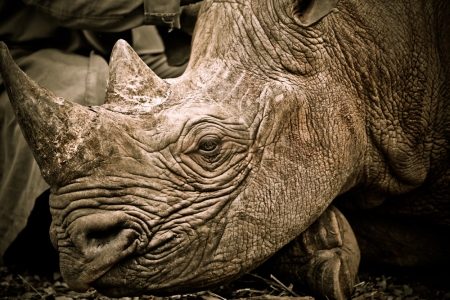
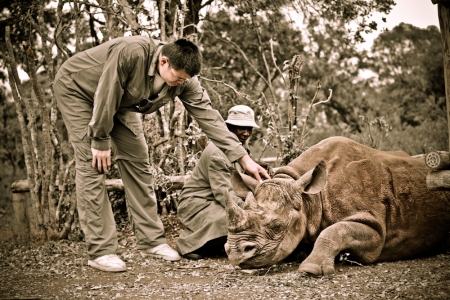
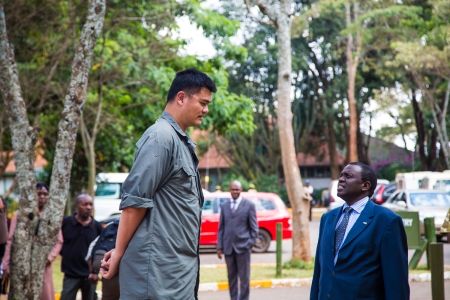
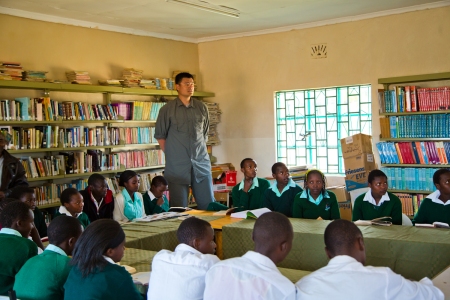
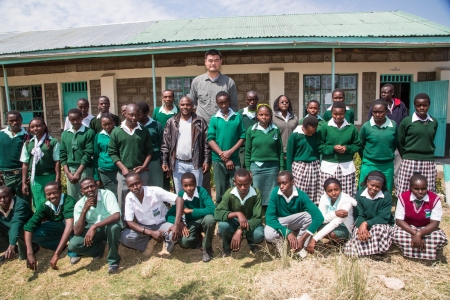
Thank you, Yao..for protecting these beautiful creatures..with your involvement, victory is near..God Bless!…safe travels..
August 28, 2012 at 6:44 am
Yao, thanks so much for making a difference by getting involved and speaking about the issues regarding poaching in Africa. I am learning so much by watching your travels – hopefully others will learn too.
August 28, 2012 at 1:47 pm
Thank you very much for everything you are doing to make the world a better place. Thank you for also taking the time to share your experiences with us. I have learned a lot from your blog so far. We are cheering for you! Wishing you and your family lots of love and good health.
August 28, 2012 at 9:18 pm
你好,姚明,今天在电视上看到残杀犀牛的场景眼泪都流下来了。感谢你做的一切,我为你是中国人而骄傲。我老公让我替他也感谢你,他是瑞士人,我们居住在瑞士。加油!!!支持你!!!
September 6, 2012 at 12:29 pm
姚哥啊,想你啊,你真是好人啊
September 8, 2012 at 9:42 am
Ere mah arto que un pino!!
Ole tu!!!
September 12, 2012 at 7:13 am
Thank you Mr. Ming for helping to save the Elephants of Africa
October 12, 2012 at 2:59 pm
Pad de parler Merci ! Just do it! s’il vous plaît.
December 11, 2012 at 12:38 pm